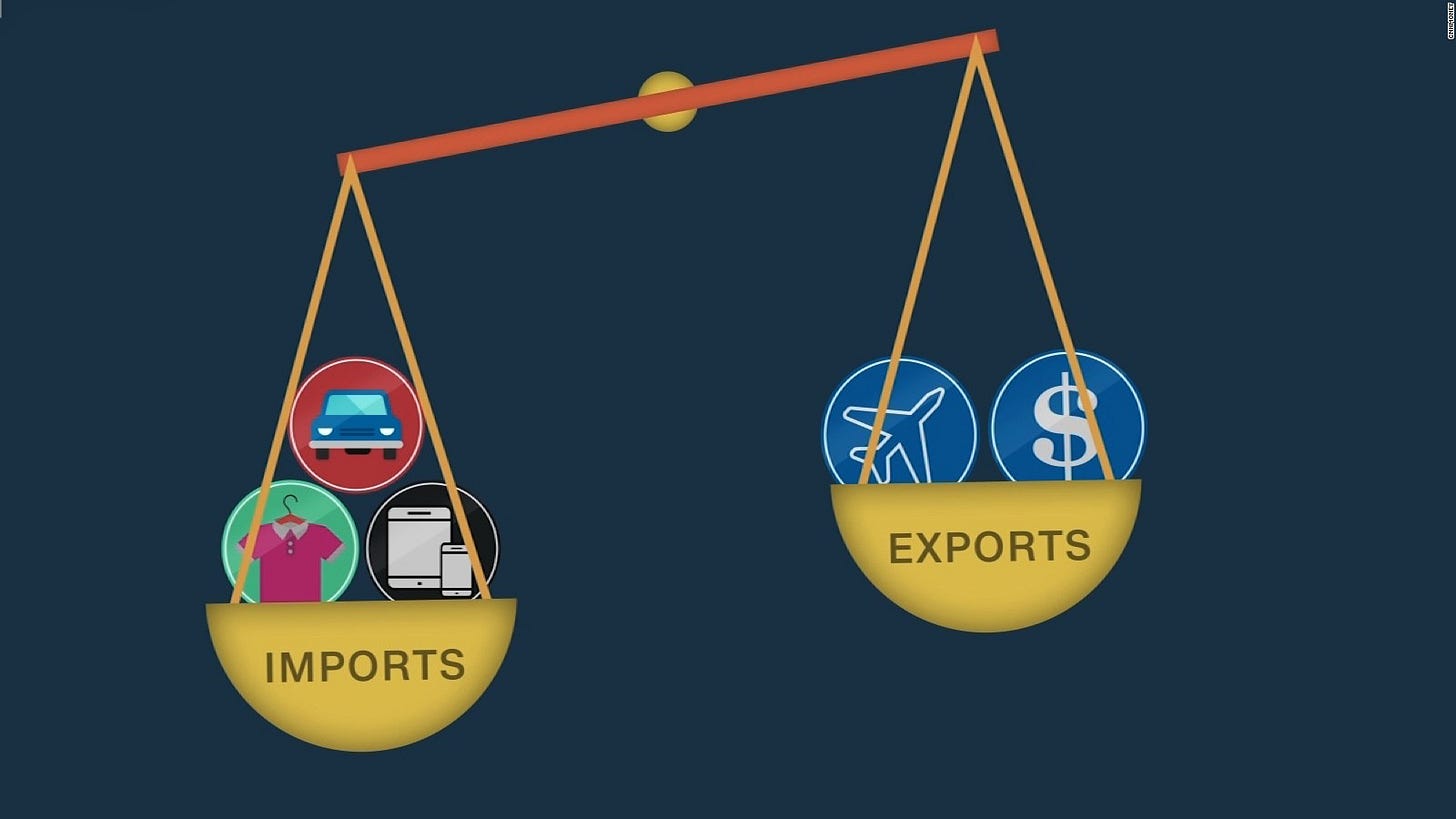All Trade is Good Trade
Editor’s Note: David is launching his own blog, so today’s bit is his last at The Roots of Liberty. I hope you’ve enjoyed his posts as much as I have. I will share a link to his Substack once it’s up and running.
In the movie Dances With Wolves, Kevin Costner’s character trades his hat for the Lakota Indian’s knife. He then comments: “Good trade!” Both come out ahead.
Humans have been trading with one another ever since they figured out the advantages of specialization (growing vegetables, hunting, building things, etc.). Trade is good. If it wasn’t good, they wouldn’t do it.
But then along come these big-government advocates who draw some arbitrary line on a map and declare that trade is only good if it does not cross this line! The latest proponent is Robert Lighthizer, former U.S. Trade Representative. He has written a book entitled No Trade Is Free, where he argues that global trade is bad, and so the U.S. government must institute tariffs, quotas, and other barriers.
Allow me to debunk his arguments.
First, let us delve on this “border” argument. If trading with, say, Mexico, is bad, because it’s on the other side of some line on a map, then by logical extension, one could conclude that Texans should not trade with Louisianians. Further, those who live in Harris County (where Houston lies) should not trade with neighboring Fort Bend County. Or even trade outside the city limits. Or heck, not even trade outside one’s immediate neighborhood! And why is it wrong for us Texans to trade with Mexico, a mere stone’s throw away, but it’s Ok to trade with Hawaii, thousands of miles away across a vast ocean?!?
Lighthizer argues that the U.S. has a "trade deficit", a major problem that must be "fixed". Oh for crying out loud. There is no such thing as a "trade deficit." Here’s why:
A few blocks from home is a Kroger grocery store. Over the many years, I have spent thousands of dollars - possibly tens of thousands of dollars - buying their merchandise. Yet, in all those years, what have they purchased from me? Answer: Zero. Zilch. Nada. By golly, there is a huge “trade deficit” here!! I need to quit patronizing them until they even things out!
The fallacy, of course, is that we are all part of one vast economic system, where every dollar spent changes hands over and over, circulating around and filtering and disbursing through the economy. What goes around comes around. What's good for Kroger is good for everyone. It's no different when an American business and a Mexican or Chinese business do business. We all live on the same planet, and in the long run, it all comes around. Trade is good. Restricting it does not create wealth.
The anti-trade zealots assume that “imports” = “expenses,” and “exports” = “revenue”, and thus a negative trade deficit will eventually result in bankruptcy. That is pure bunk. Again using my example above, my “trade deficit” with Kroger has, in fact, not bankrupted me. Why? Because I still earned an income all that time, of an amount adequate to cover my groceries and other expenses (and part of my income probably came indirectly from Kroger, as their expense dollars circulated through the economy). The best measure of my financial health, then, would be my income less my total expenses - not my “trade deficit” with one merchant.
Likewise, the best measure of our nation’s financial health would be national GDP (Gross Domestic Product), a total of all the profit made by every profit-making enterprise. It was about $25 Trillion in 2022 - despite that huge “trade deficit” that was supposed to bankrupt us all. The money that we all spent on imports circulated through the global economy, and eventually came back as income.
The anti-trade gang further points out that the Mexicans, the Chinese, and other nations are being “unfair”. What if they don't pay their workers the right salary? Or what if their government subsidizes some industry, allowing it to undercut American producers? Cut them off until they clean up their act!
First, those who argue thusly are looking at the situation backwards. America is supposed to be the good guys - the role model. We should be the ones demonstrating what a free market is really like, showing the world how much wealthier and stronger our economy is because our government gets the hell out of the way and lets the market do its magic. We should be preaching to the rest of the world that this is the way to promote stability and a high standard of living. Instead, we keep letting the rest of the world (including all those socialist, fascist, communist, tyrannical, despotic, corrupt, inefficient, busybody, despicable governments) convince us to do it their way.
Furthermore, if, say, the Chinese want to pay taxes to finance government subsidies that result in lower prices for us Americans, I got no problem with that. That “problem” is between the Chinese citizenry and their government.
Lighthizer also credits the Trump administration for writing trade agreements such as NAFTA2. Oh, excuse me, it's called the USCMA (U.S., Canada, and Mexico Agreement). NAFTA1 and USMCA are pretty much the same thing - only the name has changed. It’s a monstrous, complex piece of legislation that will surely make your eyes glaze over; readers who want the gory details can read about it here. If they had asked me to write up a trade agreement for Canada or Mexico or any country around the world, I would have grabbed the nearest dinner napkin and scrawled the following:
"The government shall not interfere with trade."
Anyway, Trump never was a big advocate of global trade. He was always eager to get into a trade war with anybody and everybody.
Competition is good. It makes businesses work hard to produce higher quality at lower prices. Americans occasionally buy things from across the border because they’re better and/or less expensive.
All trade is good trade. Nothing positive comes from government prohibiting it.









